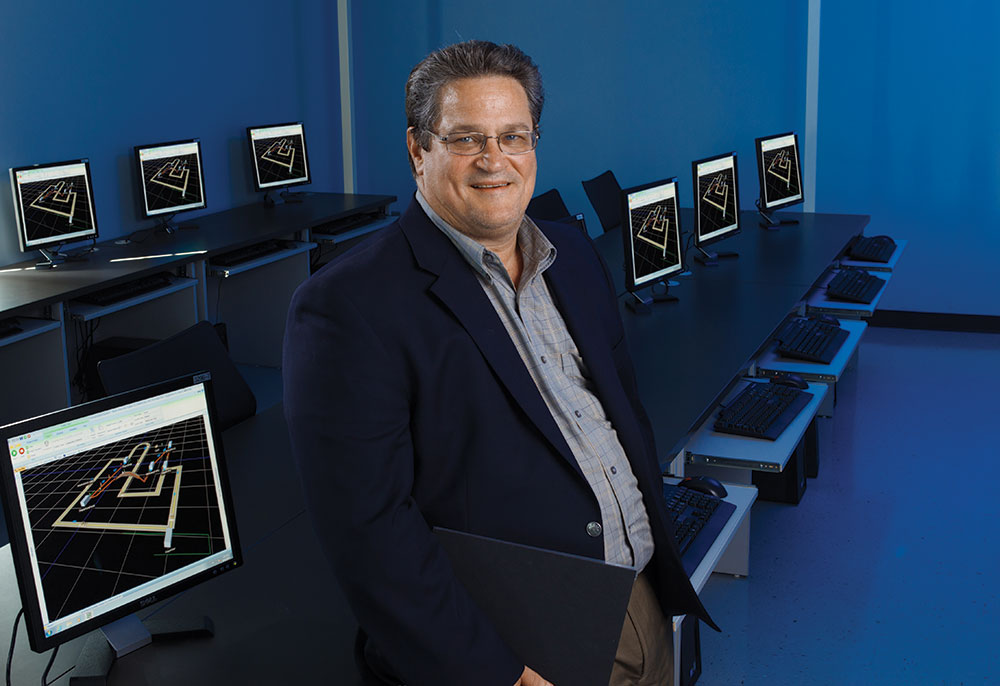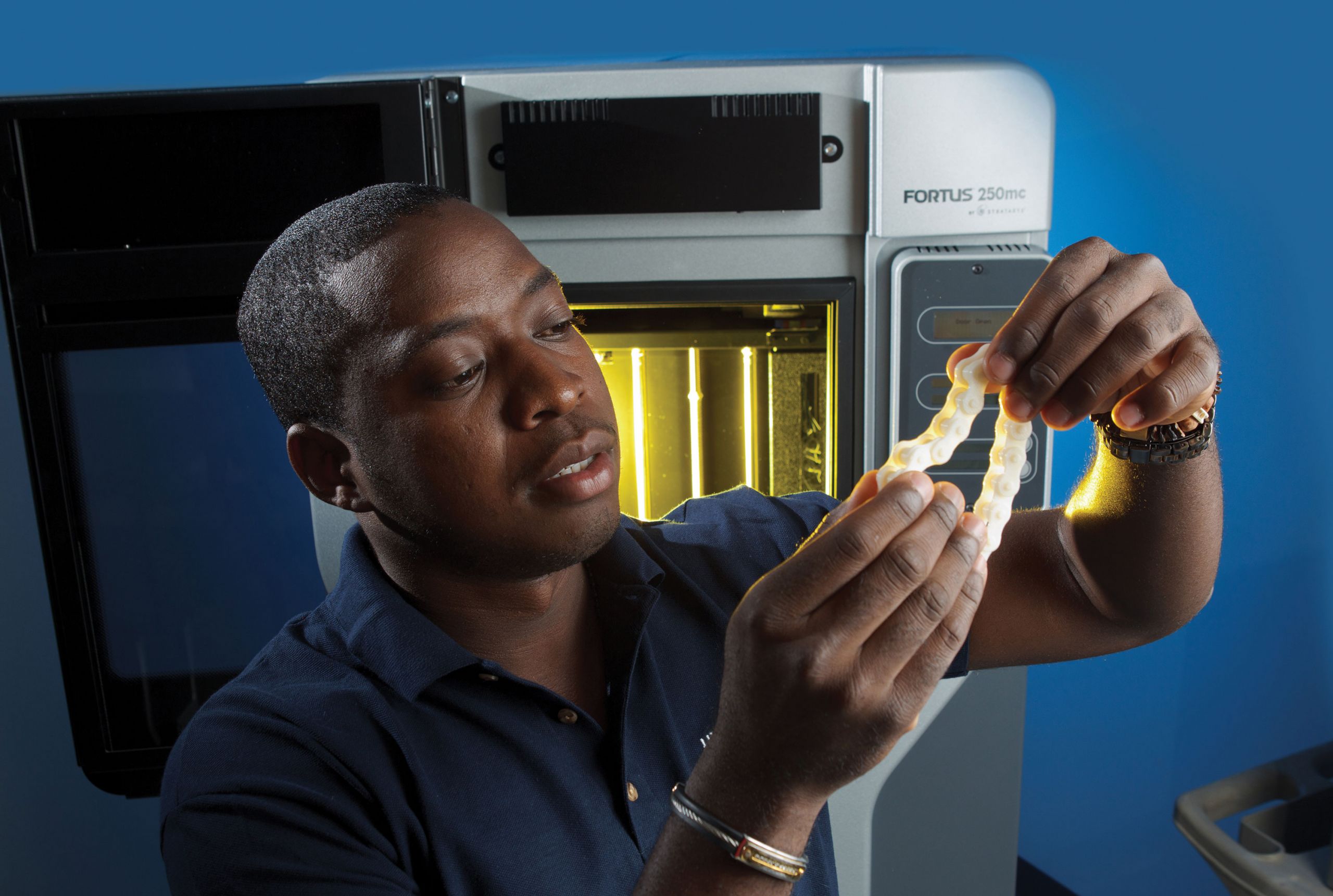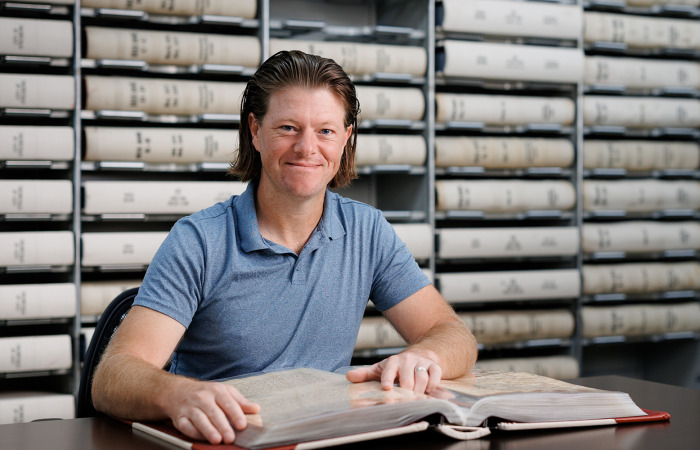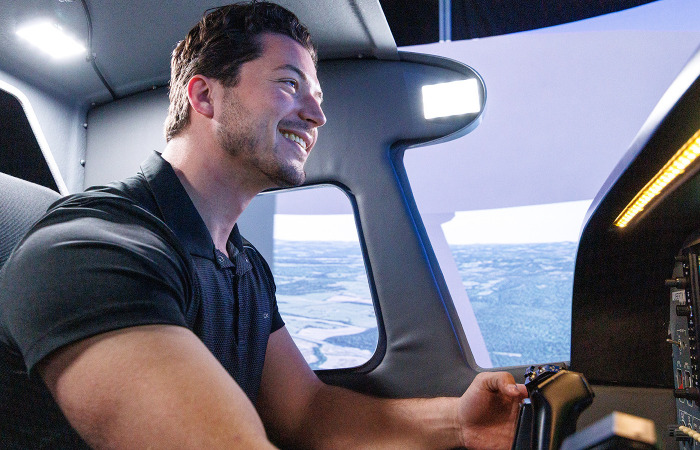
David Donahoo has been named dean of the School of Engineering and Computational Sciences. He has more than 36 years professional experience with information Systems, including serving as president of a software integration and enterprise solution company.
“In the beginning God created … .” These first few words of the Bible speak not only of God’s power, but also His creativity. Though none can match His skill, some of the most uniquely gifted minds have conceived and created technologies and programs that many find unfathomable. Computer systems process, send, and receive data faster than the eye can blink, and though these systems pale in comparison to the abilities of the human brain, they attest to its capabilities and the gift God has given His creation to emulate His creativity.
Liberty University’s School of Engineering and Computational Sciences provides students an opportunity to foster their skills to make an impact in computing and engineering-related disciplines, utilizing their brilliance and creativity to glorify their Maker. Students are exposed to the latest technology and research opportunities, which challenge them to think critically and solve problems. But it is the ability to apply a biblical worldview that sets Liberty technology and engineering graduates apart from other universities.
“Engineering is a very service-driven profession. If you think about it, engineers create things, but they create things to help better humanity,” said Scott Pleasants, director of engineering and computational technology for SECS. “Liberty is helping the nation to fulfill the need for engineering and technology professionals, but more than that we are training them to go out into the world and preach the Gospel through their skills and desire to help others.”
Liberty Provost and Senior Vice President for Academic Affairs Dr. Ron Godwin said the greatest compliment companies can give a school is hiring its students.
Liberty’s engineering and technology graduates have been in high demand since the school launched in 2007 — more than 90 percent have jobs in their fields. SECS boasts graduates at industry leaders such as IBM, the National Security Agency, Defense Information Systems Agency, the U.S. military and Department of Defense. SECS additionally has a graduate serving as a Deputy Secretary under the Virginia Governor’s office and another as the Chief Information Officer of Raleigh, N.C.
The success among graduates is a testament to the dedicated group of the faculty who work hard to train these students as Champions for Christ.
“We are a teaching university. We are proud of that. We believe we are doing a good job and are determined to do a better job every year,” Godwin said. “We are doing cutting-edge education at the undergraduate level because of this commitment.”
Many research-based institutions fall short at the teaching level. Liberty SECS professors are involved in some incredible research, but they are teachers first. They can immerse students in meaningful undergraduate research projects, allowing them to work hands-on with state-of-the-art equipment.
“As a teaching university, we have a lot of opportunities here many schools do not,” Pleasants said. “Everything that goes in (the technology lab) is preparing the students. Knowing how to utilize these devices helps prepare them for grad school or their careers.”
Liberty’s top-notch equipment includes an electron microscope, thinfilms printer, circuit board printers, inverted microscope, and a 3D printer with Computer Aided Drafting software. The models produced by the 3D printer (including a chain and adjustable wrench) are fully functional with movable parts. Students will soon be working on developing functional wing foils for students in the School of Aeronautics to test in their wind tunnel.
SECS is committed to providing the highest quality engineering and computing programs possible. In this endeavor, SECS set out in 2008 to apply for accreditation with the Accreditation Board for Engineering and Technology, Inc.
Liberty received its first ABET accreditation on Aug. 29 for its Electrical Engineering (B.S.) and Industrial & Systems Engineering (B.S.) programs. These newly accredited programs extend retroactively to Oct. 1, 2010. This is especially significant as the university had its first graduates from these programs in May 2011.
ABET is the recognized accreditor of college and university programs in applied science, computing, engineering, and engineering technology.
Accreditation is a voluntary, peer-review process that requires comprehensive, periodic evaluations. A key element is the requirement that programs continuously improve the quality of education. Programs must set specific, measurable goals for students and graduates, assess their success at reaching those goals, and improve based on the results.
“This gives our engineering and technology students serious additional validity, making them more appealing to potential employers,” Godwin said.
As the school continues to grow and mature, now with more than 430 students actively enrolled, quality leadership is essential. Godwin recently announced David Donahoo as dean.
Donahoo has served the last three years at Liberty as a professor of Information Systems. He has more than 36 years of professional experience, including 24 years in the U.S. Air Force and 12 years of diverse corporate leadership positions, culminating as president of a Washington, D.C.-based software integration and enterprise solution company.
As dean, Donahoo is working to enhance programs in other schools that could benefit from technology-related disciplines.
“Every school at Liberty has potential to overlap in engineering and computer sciences,” he said.
As an example of the departmental collaboration, the Information Systems major was moved into the School of Business and is now called Business Management of Information Systems. The program was designed within SECS but, as Donahoo explained, is a field that exists to serve a business.
“Nothing that technology offers has any impact on anything if it is not solving a business challenge,” Donahoo said, sharing his corporate experience in Information Systems. “Moving BMIS to business worked out great for the students. They now have a much more robust program for them and they now can choose from nine functional areas to start building a career. That is what we are really here for — to better serve our students.”
By working with other schools, he hopes to see students find their niche and develop it in the best educational environment.
Godwin recognizes that by breaking down ivory towers, students will have the greatest opportunity to learn and grow as professionals.
“We are committed to continuing to grow and advance the School of Engineering and Computational Sciences,” he said. “We anticipate this great cooperation going forward between the school and other disciplines within the university will only further enhance student opportunities, providing them with a quality education they can use to positively impact their respective fields.”
The School of Engineering and Computational Sciences offers degree programs in computer science and computer science with an intelligence specialization, web technology and design, electrical engineering and electrical engineering with an intelligence specialization, industrial engineering, and computer engineering.




